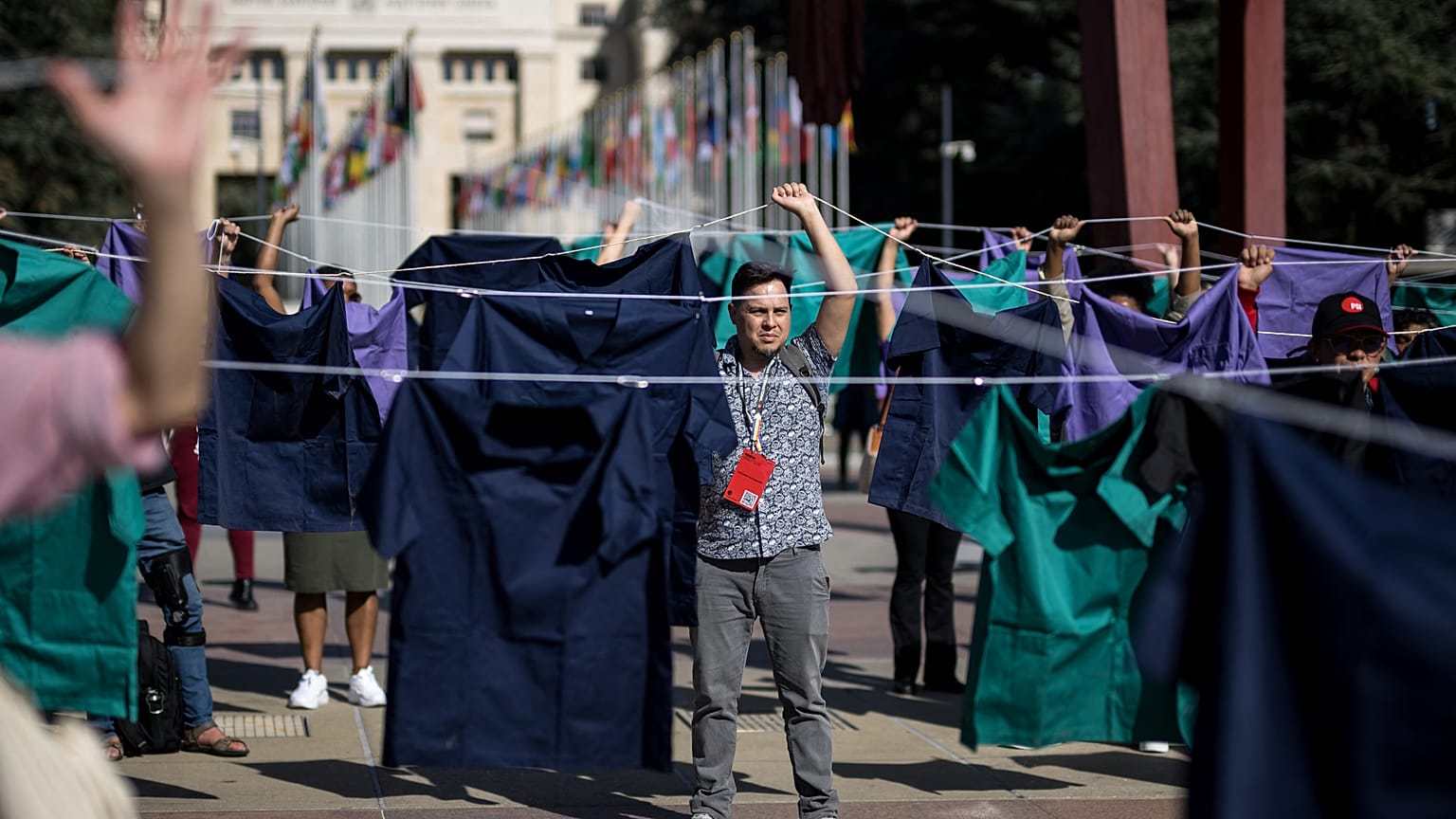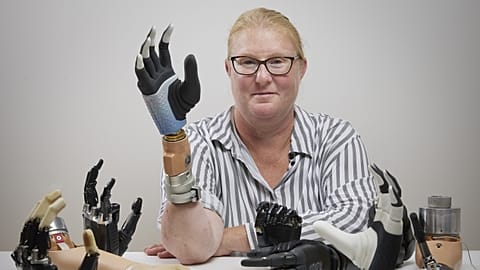A new global survey shows the extent to which staff shortages in the healthcare sector are impacting patients.
A third of frontline nurses have had patients die in their care due to staff shortages, a new global survey has found, revealing the extent to which healthcare systems are struggling across the world.
 ADVERTISEMENT
ADVERTISEMENT
 ADVERTISEMENT
ADVERTISEMENT
More than half of the survey respondents said they regularly think about quitting and have raised concerns about the state of their countries' health systems.
The survey of 2,000 healthcare workers reveals global concerns about the sector just three years after the start of the COVID-19 pandemic.
Hospitals struggled to keep up with the number of patients requiring care during the height of the pandemic, and many countries are seeing staff leave jobs due to insufficient pay and too many hours.
Health workers protested in Geneva on Thursday in front of the United Nations headquarters to highlight the staffing shortages.
The survey was released by Public Services International (PSI), a global union federation that represents 30 million workers mostly in the health and care sectors. It is present in 154 countries.
PSI's survey also found that more than two-thirds of healthcare workers have seen patients have unnecessary pain or suffering due to worker shortages.
"Many leaders blame the pandemic, but COVID has only exacerbated an existing shortage," Daniel Bertossa, the assistant general secretary of PSI, wrote to Euronews Next.
"COVID has exposed the underfunding, but it hasn't caused it. The real problem is decades of underfunding, lots of privatisation, and austerity which have made working in the sector increasingly hard," he added.
'I was the only doctor'
Bill Muriuki, a doctor from Nyeri, Kenya, said in a statement that he has "seen both staff and patients suffer due to the extreme shortage situation in my country".
"I was the only doctor in the casualty and emergency department of the biggest facility in the region and this would lead to situations, for example, where critically ill patients would come at night and have to wait for me to report to work in the morning or on Monday if they came on the weekend," he added.
Three-quarters of respondents said they had more patients than they could handle on an average day.
Muriuki says they would run out of supplies sometimes when a patient would come in.
"I have also seriously considered quitting my job time after time often after feeling that I was really not able to do enough for my patients," said Muriuki.
A majority of survey respondents also said that public investment created better conditions in the sector as opposed to private.
"We need our governments to start putting the interests of our frontline workers and the users of our healthcare services ahead of the billionaires and the corporations who are saving that money," said Bertossa.
Europe is also struggling with doctor shortages, especially as many general practitioners retire, experts have told Euronews Next.
Natasha Assopardi-Muscat, from the European regional office of the World Health Organization (WHO), said last month that there is "a huge health workforce crisis and shortage" when you look at demographic trends.
Health workers from Portugal and the UK to France have gone on strike to protest the working conditions with French doctors on strike later this week to decry what they have said are deteriorating working conditions.
For Bertossa, it's shocking that health workers say that patients are dying due. to understaffing.
"This is devastating for families who are losing their loved ones, but it's also devastating for these workers who aren't being supported to do what they join their profession to do, which is to care for people who need it," he said.

















